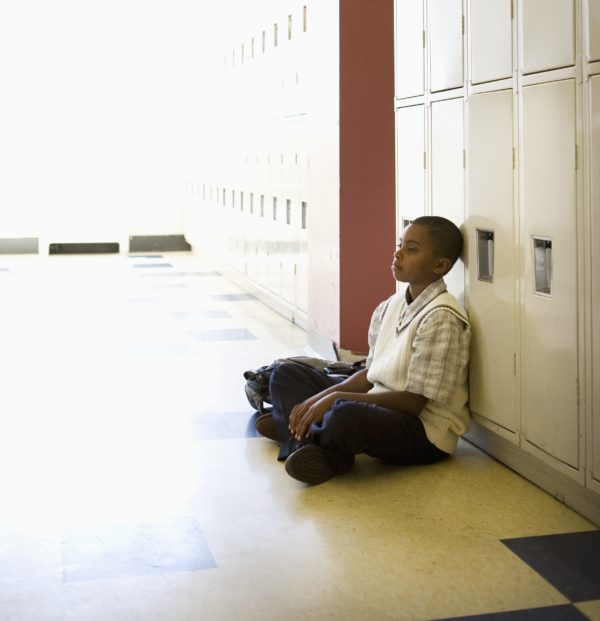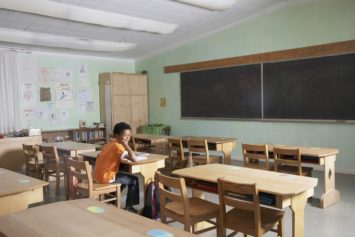A new study out of Princeton University suggests racial bias could play a major role in the increased likelihood of disciplinary action faced by African-American students in school.
The study, published in the Proceedings of the National Academy of Sciences this month, joins an extensive body of research showing Black students are more likely than their white peers to be disciplined for the most minor infractions, paving the way for a range of negative life outcomes as a result.

U.S. counties with more self-reported racial bias also had larger discipline gaps between Black and white students. (Photo: John M Lund / Getty Images)
What makes the Princeton study the first of its kind, however, is that it links the increased likelihood of Black students to face punishment at school to levels of racial bias — both implicit and explicit — in the surrounding community, Forbes reported. The large-scale study, which analyzed data covering an estimated 32 million students at 96,000 K-12 schools across the nation, found that disparities in discipline rates between Black and white students were larger in counties with more racial bias.
“There are substantial gaps in educational outcomes between black and white students in the United States,” the researchers wrote. “Increased attention has focused on differences in the rates at which black and white students are disciplined, finding [that] black students are more likely to be seen as problematic and … to be punished than white students for the same offense.”
They continued: “Although these disparities suggest that racial biases are a contributor, no previous research has shown associations with psychological measurements of bias [and] disciplinary outcomes.”
For their study, researchers used both explicit and implicit measures of self-reported bias from 1.6 million respondents who took part in the study. What they found was that explicit bias was consistently associated with stark racial disparities in school-based discipline. Researchers found a similar link between implicit bias and discipline gaps, but it was less pronounced.
According to the report, disparities were also more strongly pronounced in Northeastern counties than they were in the South, although the disparities were still present. Study authors noted that the “associations don’t extend to sexuality biases,” showing the disciplinary gap was specific to race.
“These findings suggest that acknowledging that racial biases and racial disparities in education go hand-in-hand may be an important step in resolving both of these social ills,” they wrote.
Previous research has shown that not only are Black students are nearly four times more likely than white students to be suspended from school, but they’re also almost three times as likely to be referred to police for an incident that occurred on campus and three times as likely to be expelled from school altogether. Research by the Brookings Institution found that Black students in South bore the brunt of physical in-school discipline and were twice as likely to receive corporal punishment than their white peers.
“Every time a child is beaten in school and every time one is suspended and thus loses learning time, something or someone has failed that child along the way, regardless of the ‘reason’ for the punishment,” Dick Startz, an economics professor at the University of California, Santa Barbara, wrote in the 2016 report. “So long as these failures fall disproportionately on black children, we are not yet living up to the dream that ‘children will one day live in a nation where they will not be judged by the color of their skin but by the content of their character.’ ”
Stacey Sinclair, co-lead author of the study, echoed these concerns and said it was difficult to say what sort of policies could be used to address the issue. Travis Riddle, postdoctoral researcher in Princeton’s Department of Psychology and co-author of the study, pointed to the damaging affects of school-based disciplinary actions on Black students, which have been linked to poor life outcomes like quitting school and getting caught up in the criminal justice system.
“It’s certainly possible that racial bias is a contributing factor to these disparities,” Riddle told Forbes. “It’s also possible that disparities are contributing to racial bias. Either way, our work is one piece in a larger puzzle that’s increasingly pointing towards racial bias as a factor.”


